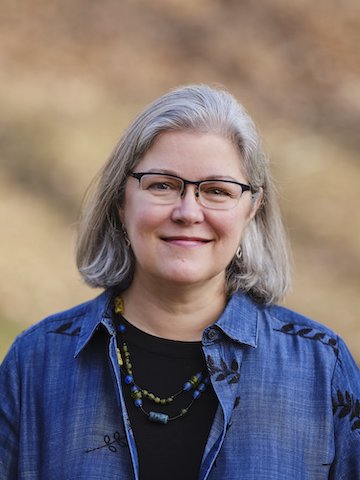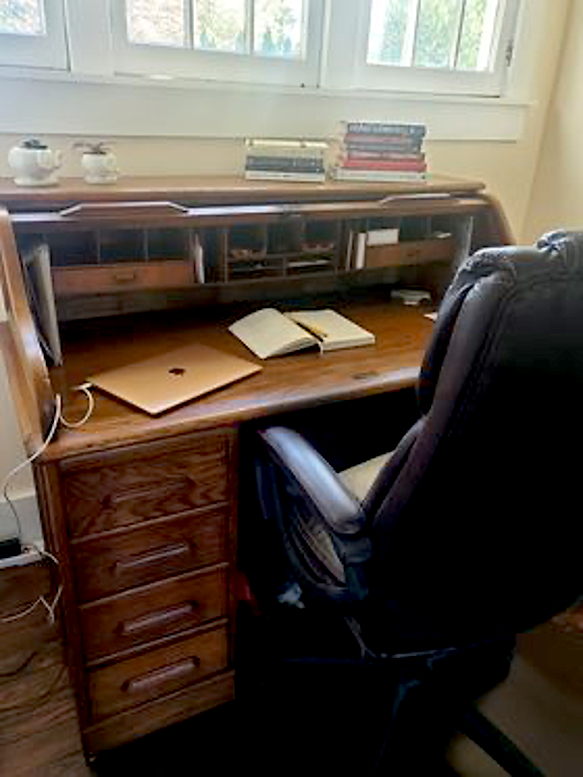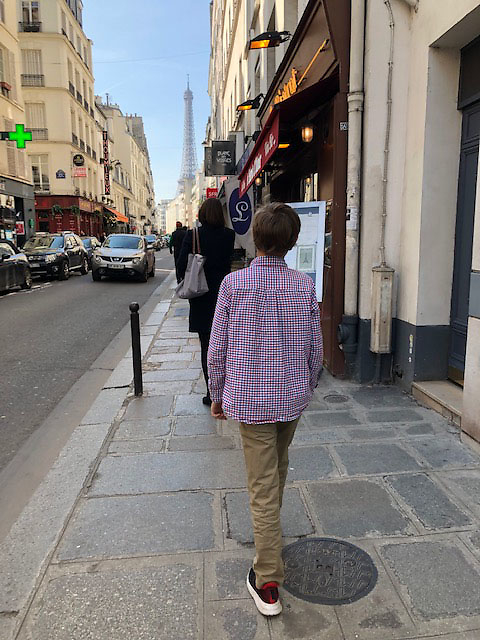Praise Song for Near Misses
I will never understand how the world didn’t end
1992.
The window behind the teacher’s desk sits at floor level, relic of a time when this wing of the building was an auditorium and this floor didn’t exist — in those days it was only open space, air flecked with motes of burning dust. Across the hall, my own classroom has exactly this setup: desk in the corner, crank-out window at floor-level behind.

This day the student desks in my colleague’s room are circled up for an after-school department meeting. I am taking notes while my baby explores the room, crawling among indulgent feet, ignoring the toys I’ve brought to entertain him. He is the department’s only baby. There have been no other department babies for many years, since long before I joined the faculty. Possibly ever, speaking of relics. As far as I can tell, all the teachers who predated my generation did not return to the classroom after giving birth, or returned only after their babies were grown.
Why do I look up from my notebook at just that moment? How do I know to look up in time to see — on the other side of the teacher circle — my baby crawling straight toward the teacher’s desk? It is a mild autumn day. What makes me wonder only then, well into the meeting, if the window might be open?
These questions will keep me up at night more than three decades later.
Weighing barely 100 pounds, how do I manage to knock over every empty chair in the room, to shove aside the occupied ones, in time to reach the window before the baby does? Before he tumbles to the pavement three stories down?
I will never know. For years to come, I will lie in bed and ask myself in the dark: How did I know? How can I trust myself to know again, if ever again I am called to know?
1996.
I am huffing up the hill in the mild autumn light, pushing my two younger children in a double stroller. Another mother pushes her double stroller a few yards ahead of mine. “Down!” I hear her toddler yelling. “Down!” I see the other mother pause and carefully step on the two levers, one for each wheel, that engage the stroller’s brakes. Finally she unbuckles the toddler and sets her down to walk on her own unsteady feet.
The other mother is a few strides farther up the hill, and so am I, by the time the dawdling toddler takes her inevitable spill. Of the two of us in this unplanned parade, I am now the mother closest to the squalling outrage. Without thinking, I rush to comfort the crying child.
Dimly, almost in slow motion — in the black night, this part of the story will always unfold in slow motion — I see the other mother again engage her stroller’s brakes, and only then do I recall that I have not engaged my own stroller’s brakes. When I turn back to my babies, again in a dream of slow motion, the wheels have swiveled. The stroller has reversed itself on the hill. As I turn, it is only just beginning its downhill sprint. My toddler is sitting in the seat up front, 28 pounds of ballast, while my infant, not even buckled in, is sound asleep, stretched out flat in the cradle of the collapsed back seat.
I drop the neighbor toddler’s hand and run.
I am not a runner, but this day I put everything I have, everything I have ever been, into running. Every muscle in my thighs and calves and ankles and feet. Every beating cell in my heart. Every porous cell in my lungs. I have never run like this in my life. I will never run like this again. All I am now is a body in motion, a body flinging itself down a hill in a mismatched race with rapidly spinning wheels.
The stroller is picking up speed, heading for an intersection without a stop sign, heading for a ditch deeper than my knees. I run down the hill in a body that has never trained for this, was not remotely formed for this. When that body begins to give out, as I feel my knees surrendering, I throw myself forward with just enough power, on exactly the right trajectory. By some miracle, by the unaccountable grace of only God, I catch the handle of the stroller with both hands as I’m going down.
The stroller bucks and rears, its front wheels popped up and spinning in the air. My pants are torn, my knees are bleeding, the toddler is laughing and the baby is sleeping while we all, as one, come to a stop.
The stroller stops.
The world stops.
Except for the heaving, desperate attempts to make air enter my lungs again, I stop. It is hours before I am calm enough to say, “Thank you.” Finally I remember to say, “Thank you.”
Today. All days.
Still I am saying, “Thank you.” All these years later, I am saying, “Thank you.”
To the God of the sun and the clouds and the fleeing shadows cast by clouds. To the God of turning leaves and the God of birdsong and the God of stroller wheels crunching over loose pebbles and the God of flowers blooming in the ditch beside the road. To whatever God made me turn around, to whatever God filled my body with enough speed to beat a wheeled vehicle down the steepest hill in our neighborhood, to whatever God filled me with enough strength to knock over student desks in time to catch a crawling baby before he reached an open third-floor window: Thank you.
I will never understand how the world didn’t end. I looked up in time. I turned around in time. I don’t know why. I will never know why. And even now, in the darkest part of the dark night, still I am whispering, “Thank you.”
Copyright © 2025 by Margaret Renkl. All rights reserved.

Margaret Renk is the author of The Comfort of Crows: A Backyard Year, Late Migrations: A Natural History of Love and Loss, and Graceland, At Last: Notes on Hope and Heartache From the American South. She is a contributing opinion writer for The New York Times and the founding editor of Chapter 16. She lives in Nashville.


